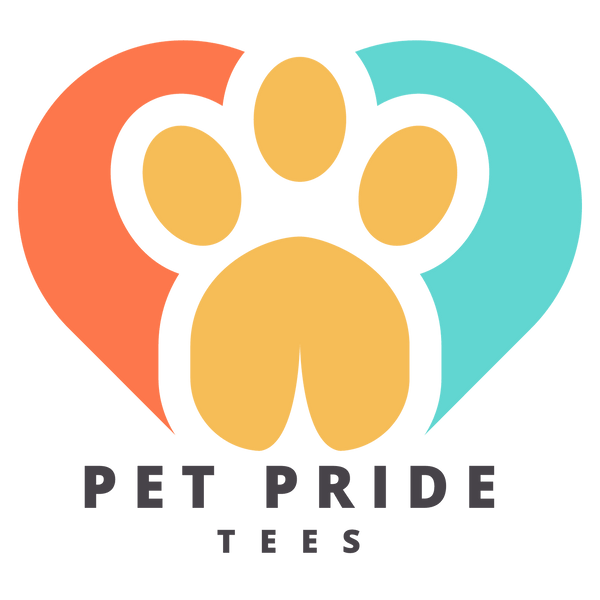
Pet Nutrition: Understanding Your Pet's Dietary Needs
Share
Frequently Asked Questions
1. What are the basic nutritional needs for pets?
2. How do I choose the right food for my pet?
3. What specific dietary needs do cats have?
4. How often should I feed my pet?
5. What are the benefits of monitoring my pet’s health regarding nutrition?
As a pet owner, understanding your furry friend's dietary needs is crucial for their overall health and happiness. Just like us, pets require the right mix of nutrients to thrive. At Pet Pride Tees, we believe that a well-nourished pet is a happy pet. This guide will help uncover the essentials of pet nutrition, focusing on the specific needs of dogs and cats, and help you become the best pet parent you can be.
The Importance of Proper Nutrition
Feeding your pet a balanced diet is fundamental to their wellbeing. Good nutrition supports a strong immune system, promotes healthy growth, and can even improve mood and behavior. It's essential to recognize that what works for one pet may not work for another; each animal has unique dietary needs that depend on various factors, including:
- Age
- Breed
- Activity level
- Health condition
Whether you’re a proud owner of a playful kitten or a seasoned caretaker to a wise rescue dog wearing a "Rescue Mom Tee," knowing what to feed your pet is key.
Understanding Nutritional Basics for Pets
Macronutrients: Proteins, Fats, and Carbohydrates
Pets require three primary macronutrients in their diet:
- Proteins: Essential for growth, maintenance, and repair of tissues. Sources can include meat, fish, and plant proteins.
- Fats: A concentrated source of energy, fats help absorb vitamins and keep the skin and coat healthy. Look for animal fats or oils like fish oil.
- Carbohydrates: Although not essential, they can provide a readily available source of energy. Whole grains, fruits, and vegetables should be included in moderation.
Every pet, both dogs and cats, requires a mix of these nutrients, but the proportions can be different based on their specific needs.
Vitamins and Minerals: Micronutrients Matter
Just as important as macronutrients are the vitamins and minerals that support vital body functions. Key vitamins include:
- Vitamin A: Important for vision and immune function.
- B vitamins: Crucial for energy production and neurological function.
- Vitamin E: An antioxidant that helps maintain cell membrane integrity.
Minerals like calcium and phosphorus are vital for bone health, while iron and zinc support various metabolic functions. The right blend of these micronutrients can be essential to fostering a robust and spirited feline or canine companion.
Choosing the Right Food for Your Pet
Selecting the best diet for your pet involves more than just grabbing a bag off the store shelf. Here are a few tips to help you choose wisely:
- Read the Labels: Pet food labels can be misleading. Look for foods that list high-quality protein sources as the first ingredient.
- Check for AAFCO Approval: The Association of American Feed Control Officials (AAFCO) establishes standards for pet foods. Look for products that meet AAFCO guidelines for nutritional adequacy.
- Consider Life Stage: Puppies and kittens require different nutritional content than adult and senior pets. Ensure the chosen food fits their life stage.
Feeding Cats: Meeting Feline Needs
Cats have very specific dietary requirements since they are obligate carnivores. This means that they must consume meat to meet their nutritional needs. Here are some key aspects to consider when feeding your cat:
High Protein Requirement
Cats need a diet that is high in protein. It is also essential to ensure that the protein source is of high quality. Animal-based proteins should be prioritized in your cat's diet. Look for foods that include chicken, fish, or beef as primary ingredients.
Limited Carbohydrates
Unlike dogs, cats have a limited ability to process carbohydrates. Be cautious with food that has excessive grains or fillers, as these can lead to health issues such as obesity or diabetes.
Hydration is Key
Unlike dogs, many cats don’t drink enough water. Incorporating wet food into their diet can ensure they receive enough moisture to stay healthy. Fresh water should always be available to them, as hydration is crucial for kidney health.
Feeding Dogs: Understanding Canine Needs
Dogs, being omnivorous, have more flexibility in their diets compared to cats. However, certain guidelines should be followed to ensure your pup's health. Here are some crucial tips:
Proper Balance of Nutrients
Unlike cats, dogs can thrive on a balanced diet that includes protein, fats, carbohydrates, vitamins, and minerals. Dog food should ideally consist of:
- High-quality animal proteins
- Healthy fats
- Whole grains and vegetables
Age and Size Considerations
Just as with cats, your dog’s life stage plays a significant role in determining their dietary needs. Puppies require nutrient-rich food to support growth, while seniors benefit from targeted nutrition that maintains health and energy levels.
Addressing Special Dietary Needs
Some dogs may have allergies or specific health concerns that require special diets. It’s crucial to work with a veterinarian to determine any unique needs and find appropriate solutions.
Homemade vs. Commercial Diets: What to Choose?
When it comes to pet food, you may ponder whether to feed your furry friend commercial diets or prepare homemade meals. Each option has pros and cons:
Commercial Pet Foods
Commercial foods provide convenience and ease, often containing all the essential nutrients your pet needs. Look for high-quality brands with AAFCO approval and verify the ingredient sources.
Homemade Diets
Creating your own pet meals gives you full control over what goes into their food. However, it’s vital to understand your pet's nutritional needs thoroughly. Consulting with a veterinarian or a pet nutritionist can help ensure your homemade meals are balanced.
Understanding Feeding Schedules
Deciding when and how often to feed your pet is just as important as what you feed them. Here are some guidelines for feeding schedules:
Puppies and Kittens
Young animals typically require more frequent meals. For example, puppies should be fed three to four times a day, while kittens have similar needs.
Adult Pets
Most adult pets thrive on two meals a day. Establishing a routine can help maintain a healthy weight and further promote digestive health.
Senior Animals
Older pets may require adjustments to meal frequency and portion sizes based on their activity levels and health changes. Consulting with a veterinarian is crucial at this stage to create an optimal feeding plan.
Monitoring Your Pet's Health
No discussion about pet nutrition would be complete without addressing ongoing health monitoring. Pets can’t tell us when something doesn’t feel right, so as a responsible owner, you need to observe signs of good health and identify potential issues. Keep an eye on their:
- Coat condition
- Weight
- Energy levels
- Body condition score
Making Adjustments
If you notice any changes in your pet's health or behavior, it may indicate a need for dietary adjustments. Frequent veterinary check-ups can help maintain your pet's health and detect potential dietary deficiencies early.
Creating a Lasting Bond Through Nutrition
Nurturing your pet with quality nutrition is an excellent way to strengthen the bond between you and your furry friend. Regularly spending time together during mealtimes can help facilitate a positive relationship while ensuring their dietary needs are met.
Feeding with Love
Investing time to understand your pet's unique needs will pave the way for a fulfilling relationship. Incorporating practices such as homemade treats, training, and companionship during meals fosters an even stronger connection.
A Healthier Tomorrow Awaits!
In summary, understanding pet nutrition is an ongoing journey as you identify the right foods and feeding strategies for your beloved companions. With the right knowledge, you can provide a balanced diet tailored to your pet's unique requirements, leading them to a longer, healthier, and happier life. Your cherished friend in the "Rescue Mom Tee" deserves all the best in life, starting from the food in their bowl! Embrace the adventure in learning about pet nutrition, and continue to explore how you can meet your amazing pet's needs.

